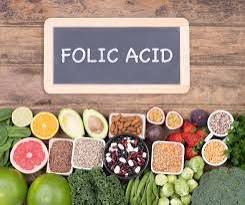In a recent review article published in Nutrients, researchers summarized what is known about the effects of excessive folic acid (FA) supplementation for mothers on children.
They conclude that while folate is a crucial nutrient, higher than necessary maternal FA intake may have adverse effects on their offspring.
Folate is an essential nutrient
Water-soluble vitamin B9, or folate, is needed for red blood cell (RBC) formation and to promote healthy cell growth and functioning.
Doctors consider it necessary during pregnancy and lactation for fetal and placental growth, for the enlargement of the uterus, to reduce the risk of the child developing congenital disabilities in the brain and spine, and otherwise improve cardiovascular and reproductive health.
Folate can be found naturally in some foods, such as beans, peas, green leafy vegetables, and nuts. However, synthesized FA has been distributed widely in fortified food and nutrient supplements.
Once consumed, it facilitates methyl group transfer among molecules, facilitating nucleotide synthesis and the metabolism of amino acids. Specifically, it is involved in methyl-donor metabolism.
Adequate FA supplementation has been associated with higher birth and placental weight and a lower risk of children being small for their gestational age and low birth weight. It also reduces the likelihood of neural tube defects (NTDs).
Continuing supplementation into the second and third trimesters has been shown to have sustained benefits for the neurocognitive development of children up to 11 years old. These included emotional intelligence, word reasoning, semantic processing, verbal-executive and motor function, attention, communication, and social competence.
Maternal deficiency of folate has been linked to numerous adverse outcomes, including elevated blood pressure and overweight in children. However, the availability of fortified foods and supplements has significantly raised folate levels in serum, RBCs, and overall, and recent studies have raised the possibility of adverse consequences of excess supplementation.
Because many women don’t meet their folate needs through food sources alone, those of childbearing age are often encouraged to take folic acid supplements. However, supplementing with too much folic acid while pregnant may increase insulin resistance and slow brain development in babies.
The Effects Of Excessive Maternal Folate Consumption On Offspring




